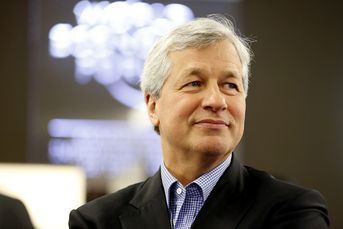Future challenges for the advice business

Seven industry notables offer their views on what the financial advice business will look like in coming years.
Baseball legend and occasional philosopher Yogi Berra once observed that it’s tough to make predictions, especially about the future. Despite the difficulty of the assignment, InvestmentNews’ Jeff Benjamin recently asked seven industry notables to offer their views on what the financial advice business will look like in coming years. Their insights point to four key directions the industry is likely to take over the next few years — and the challenges those possible routes pose.
A shift in fees. The industry’s decades-long move to fee-based revenue is unlikely to reverse. But assets aren’t the only basis for fees. As blogger extraordinaire Michael Kitces observed, the AUM model works for people with piles of money to manage who prefer to delegate to a professional. For those with lesser assets and for “validators” who do most of the planning and investing work themselves but want a professional opinion from time to time, the AUM model isn’t a great fit. For them, time-based fees make more sense. Market researcher Alyssa Riedel noted that the ubiquity of smartphones, which provides wider access to information, implies that the future of advice is “down market” as a broader segment of the population now can easily seek information and advice about managing money.
The challenge: To serve a broader market, advisers will have to experiment with a range of revenue models and use technology creatively to deliver advice.
Growth of cryptocurrencies. Adviser-entrepreneurs Ric Edelman and Tyrone Ross Jr. both envision a future in which cryptocurrencies are portfolio staples and implore advisers to get on board now. While uncertainty about the investment merits of cryptocurrencies makes sense given their volatility and their “Wild West” character, in the words of Securities and Exchange Commission Chairman Gary Gensler, they also are, in Gensler’s words, “a store of value that people wish to invest in as some would invest in gold.”
The challenge: Becoming sufficiently knowledgeable about cryptocurrencies to properly advise clients.
Meeting longevity’s demands. Typical advice clients are healthier, wealthier and more educated than average, meaning they also are much more likely to live longer than average. Ric Edelman says greater longevity means rethinking risk management and asset allocation, as well as assumptions about work and retirement.
The challenge: Developing the skills necessary to manage portfolios for longer than anticipated and to advise people on the financial aspects of living a life far longer than they currently assume.
More knowledgeable customers. Several futurecasters envision many clients becoming as knowledgeable about investing as advisers, and many getting advice from nontraditional sources. Fintech CEO Lule Demmissie says advisers increasingly will have to help those clients manage the psychological side of money, not just investing, while Fidelity’s Mike Durbin sees advisers having to select investments that match client values. Envestnet executive Dani Fava sees the consumer sector making inroads by teaching people how to save and invest.
The challenge: Creating scalable practices and businesses when clients will demand more personalized service and products, while being able to access advice from many sources.
Learn more about reprints and licensing for this article.







